12 Successful Founders Who Thought They Failed At First
We're often bombarded with stories of startups that achieve immediate success.
But what many founders don't openly share is the journey of failures that led them there.
In this article, we'll share the stories of 12 founders who believed they had failed, only to discover their breakthrough idea.
1. Helical Insight (960K/year)
Nitin Sahu (from Hyderabad, Telangana, India) started Helical Insight over 8 years ago.
I and my co-founder Nikhilesh Tiwari had done our schooling together. We always wanted to start something of our own and tried a few things but unfortunately failed.
We had also started a healthcare IT company and tried to provide software products to hospitals, labs, blood banks, etc. But we didn’t have much idea about the healthcare domain (which had a lot of stringent regulations) and thus had to shut it down.
Build something in a sector wherein you know the pain points and how you can tackle those pain points. Otherwise, in many cases, the learning curve itself can be very long.

2. Tweet Hunter (2.64M/year)
Tom Jacquesson (from Paris, France) started Tweet Hunter almost 4 years ago.
The first startup I launched was in 2014, it was a kids’ educational mobile app. Things didn’t go as well as I wanted so I moved back to “having a job” for a few years. And then my co-founder of the time reached back out to me and we decided to work together again. That was back in January of last year. I quit my job in March.
There’s a reason I failed my first startup: I knew nothing about the target audience.
It was an educational app to motivate kids to do their chores. I wasn’t a kid. I wasn’t a parent. I had no particular skill in education or child psychology. And I didn’t do my chores.

3. Krit (1.09M/year)
Andrew Askins (from ) started Krit about 11 years ago.
We launched on Product Hunt and made it to #2, acquiring a few thousand users in the first few days. Then we hit a wall. We had all these users, but no one was paying us for the product.
The more we talked to people to try to figure out why the more we realized most freelancers didn’t value contracts.
We thought about trying to find a new market or launching a new product. But at this point, we were burnt out and running out of money.
Two years into our business we made the tough decision to shut down our product and go fulltime as an agency.
Once we decided that was what we wanted it was full steam ahead. We let our users know we were shutting down, and spent the next month creating a new brand and website.

4. Widebundle (660K/year)
Mat De Sousa (from Paris, France) started Widebundle almost 5 years ago.
While learning, I built one Shopify App in 2017 and grew it to $1,000 MRR. However, I got stuck and didn’t know what to do. After a few months, Shopify made some updates, forcing me to shut down my app. So I consider this app a failure.
I thought I could grow Shopify Apps so I tried to build another one but failed. I wasn’t able to get a single user and had to stop it. I built a third one, but it failed the same way. No one wanted it. I had spent months working on the 2 apps. They were “perfect” in my opinion but it wasn’t good for the people. So I shut it down.
Then I gave up, and only in 2020, when I had to do this internship, I decided to give Shopify Apps another try.
But this time, I wanted to do it properly. I used Shopify Facebook Groups and communities to read people’s problems and questions, add comments and start conversations. It’s a long job that only a few people want to do, but it works.

5. a:musé (96K/year)
Eva Maganja (from Ljubljana, Slovenia) started a:musé over 3 years ago.
The challenging part was ensuring that the printer could accurately produce the model. There were about 40 failed prints before we finally got it right!
It was a bit of a learning curve, but we eventually managed to create some silicon molds based on the 3D-printed design.
Failing fast allows you to quickly identify what's working and what's not so that you can make the necessary adjustments and course-correct.
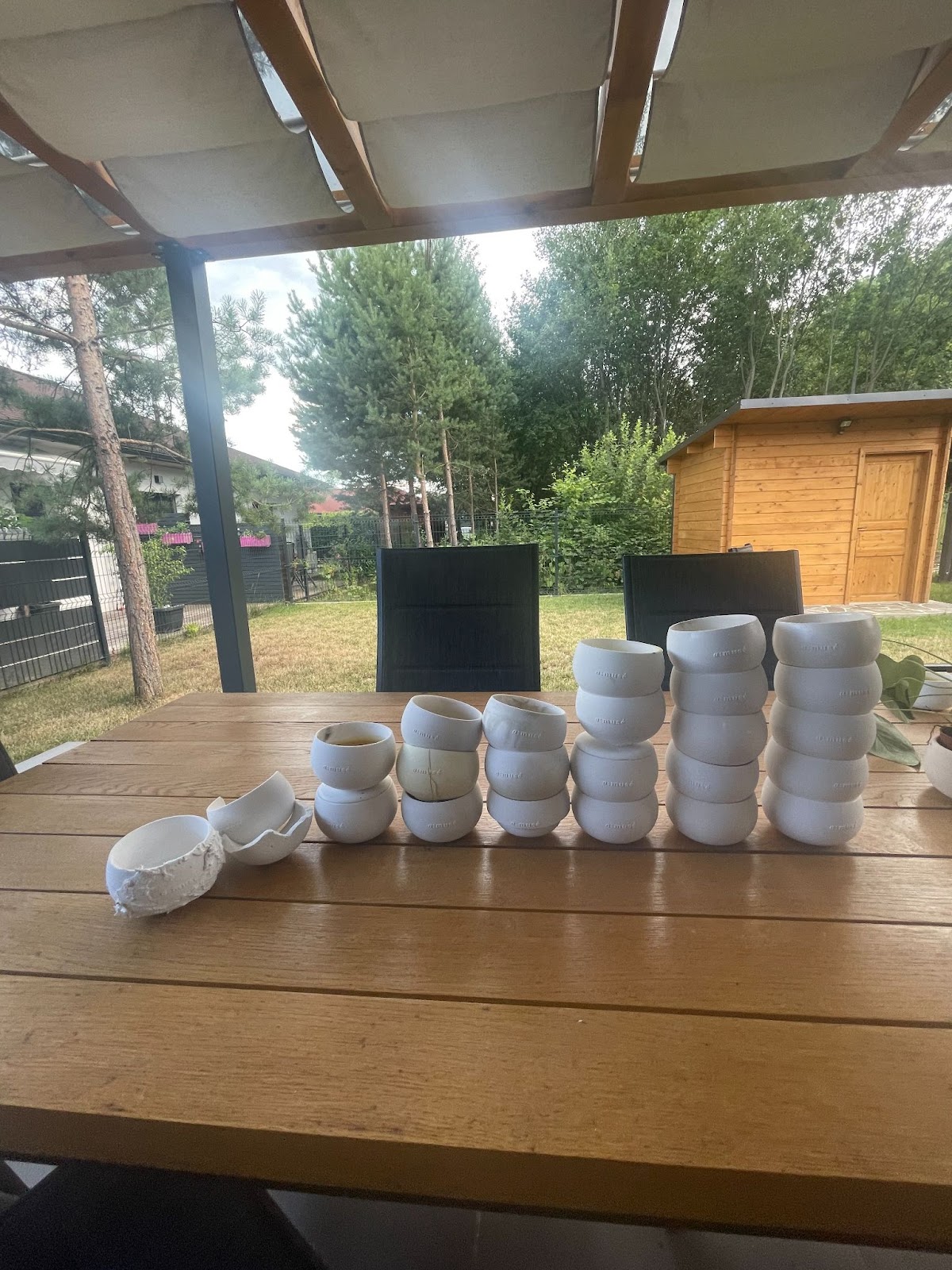
Some of the failed first prototypes - we were testing different materials of ceramic
6. QR TIGER (3.6M/year)
Benjamin Claeys (from New York, NY, USA) started QR TIGER about 7 years ago.
In the first startup, we had users, because everybody loved the free stuff that the game brought, but we didn't have a good business model. From then on, I realized how important it is to focus on revenue from day one.
The first startup was a fun idea. It was something interesting and we got a lot of attention from it. But then again it’s the big difference between a good idea and the execution of how to make it profitable. It’s a very different thing, and we failed to focus on the latter.
In hindsight, it was crazy to go from a failed startup into a new one, with a huge risk of being in even bigger financial trouble.
I started to focus more on building more features, and listening to what customers needed and built our website from there. Until now that’s still one of the key values in QR TIGER—being customer-centric.
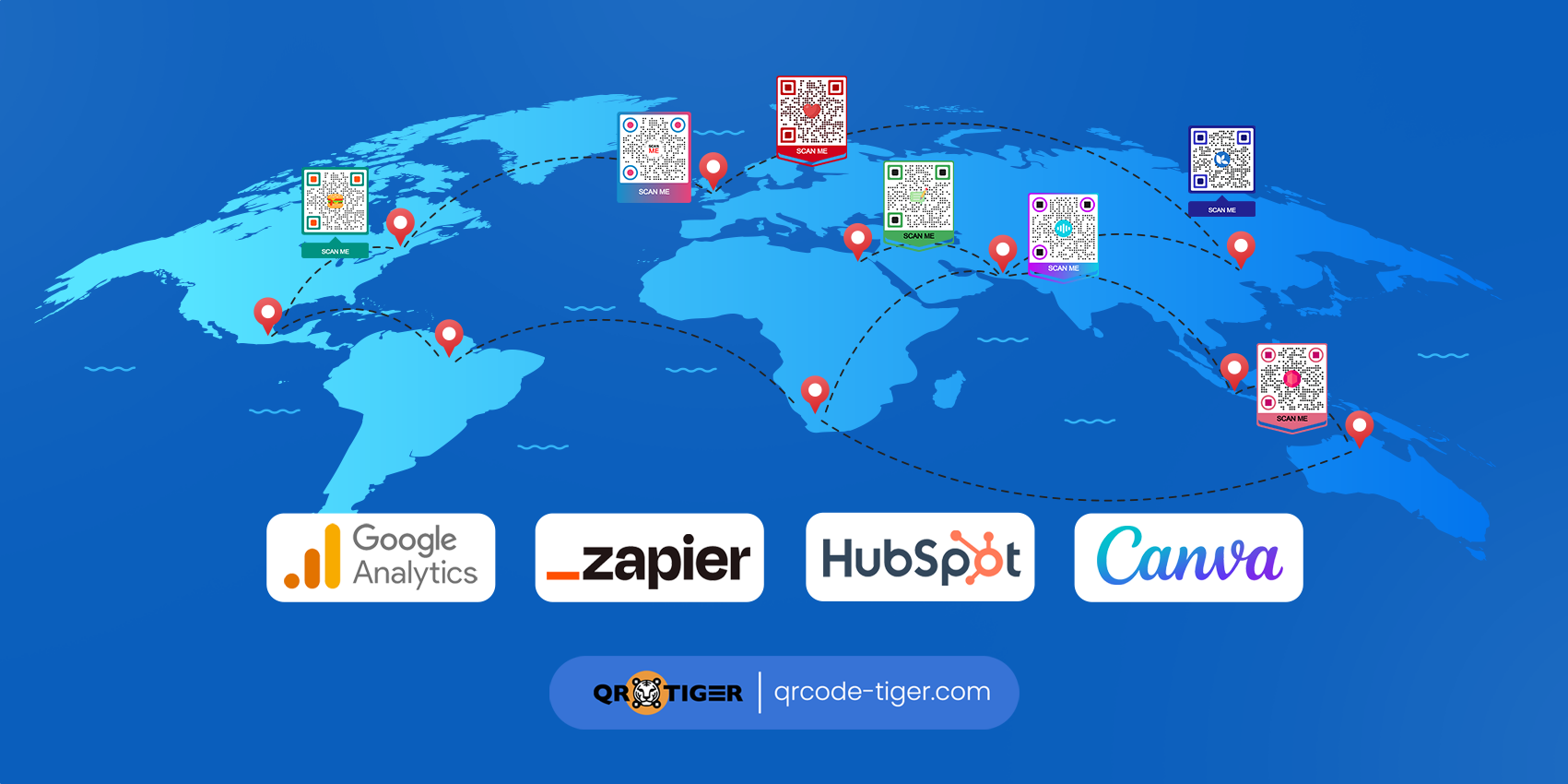
7. Mailman (360K/year)
Mohit Mamoria (from Victoria, BC) started Mailman almost 5 years ago.
I picked up coding when I was eleven, then built my first company when I was eighteen.
So, I went on to build 25+ side projects. Most of them failed – BOOM – but a few brought in some revenue.
After failing small and big over two dozen times, we had one product that investors wanted to invest money in, and after five years of growing it, we sold it, and I took some time off from making stuff.
Someone who has failed 19 times has more chances of succeeding than someone who has never attempted anything. Start. Start small. Fail. Repeat.
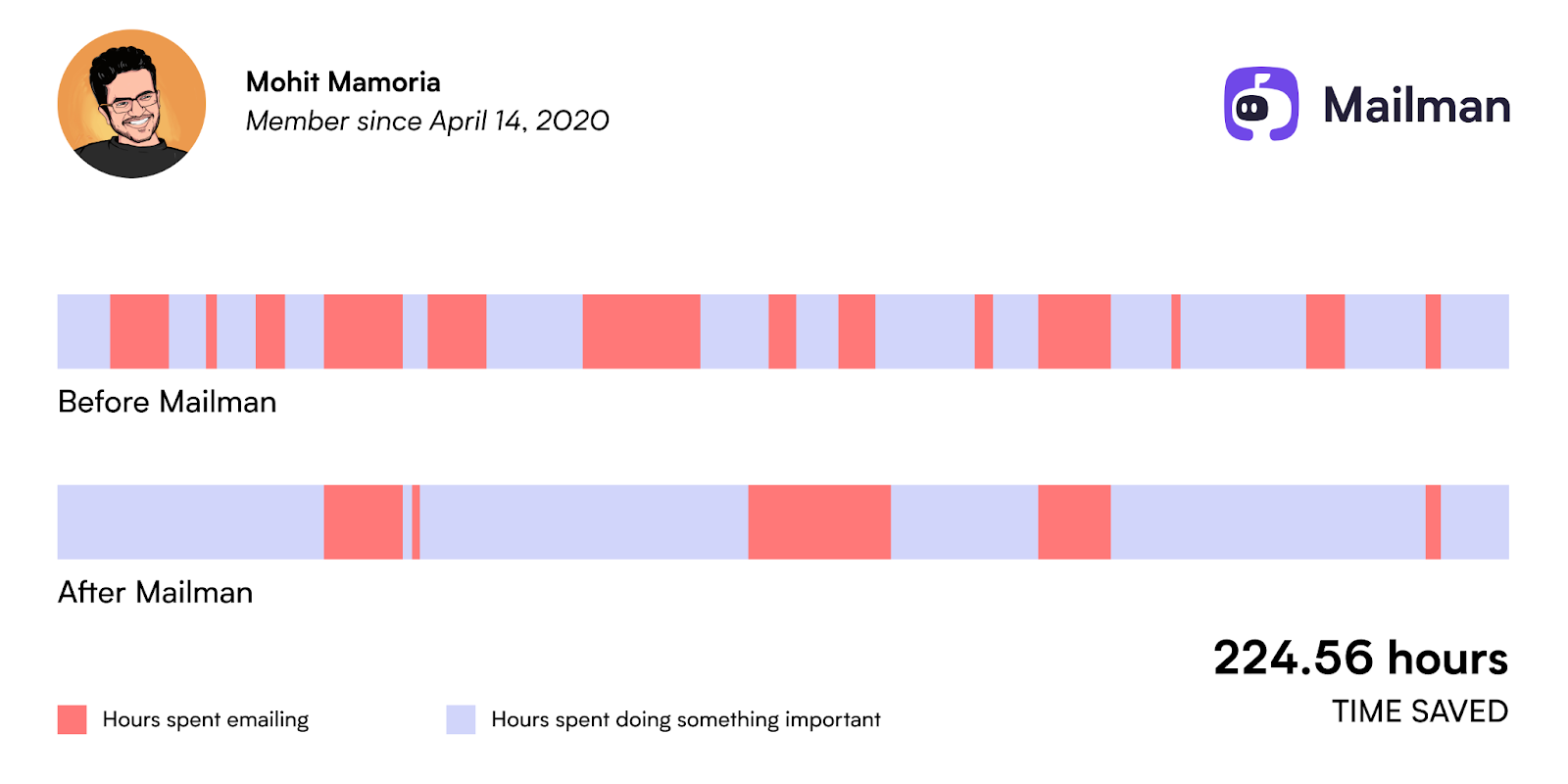
8. Hawk Prospecting (12K/year)
Mohamad Alasadi (from London, UK) started Hawk Prospecting over 3 years ago.
Around a month and a half ago, I started my first ever SaaS company, Hawk Prospecting, after a failed attempt at running my marketing agency.
The biggest lesson I learned during the launch was that you’re never going to know if something will succeed or not. You shouldn't be scared to fail because when you fail, then you’ll know what you need to work on.
If I spent longer trying to avoid the inevitable, I would have never been able to get those initial 100 users and the $1500 in revenue. People will always want to support a new business, you’ve just gotta put yourself out there.
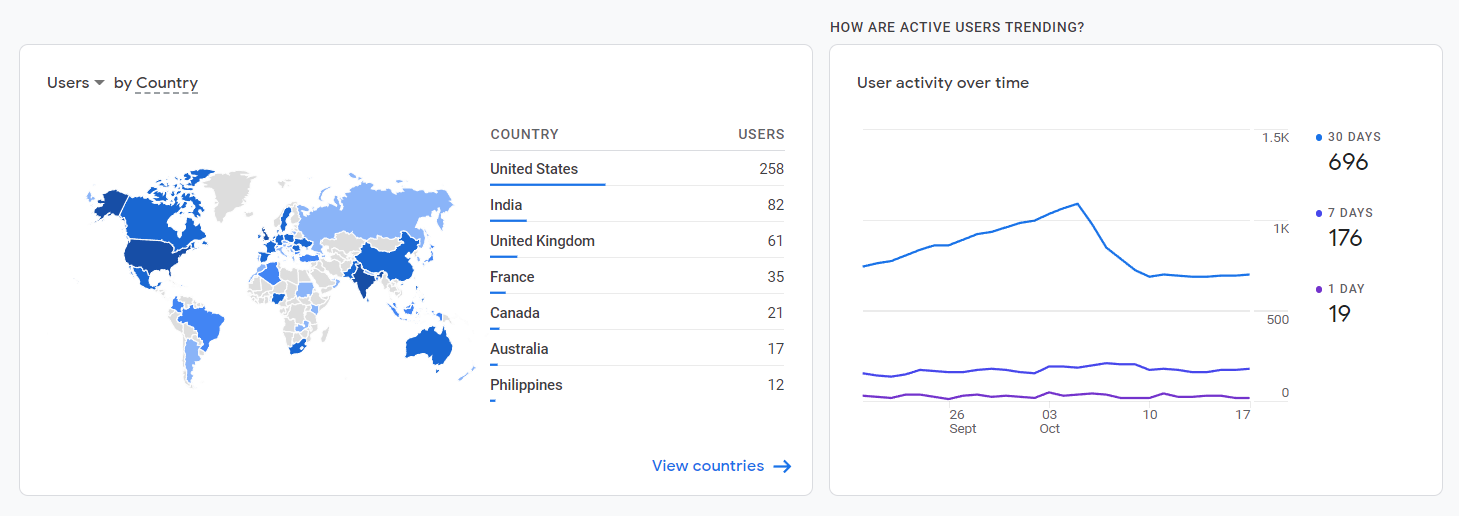
9. Tangerine Rêve (0/year)
Natalie Le (from Costa Mesa, CA, USA) started Tangerine Rêve over 2 years ago.
First Fail: I first started a small e-commerce retail business for women’s workwear for young professionals. I bootstrapped and figured out everything with 0 industry knowledge or experience. That failed after a year because I didn’t understand digital marketing at the time and couldn’t move inventory as fast as the seasons came and went. Fashion moves fast!
Second Fail: Next, I transitioned the e-commerce site to a podcast, where I interviewed women who went from corporate employees to creative entrepreneurs. Podcasts weren’t mainstream at the time – but I managed to squeeze out 33 episodes, with 13,000+ downloads in 7 months.
Third Time’s a Charm: Lennon is the inspiration for my current brand Tangerine Rêve. He suffers from eczema and I was looking for more organic and natural pajamas since his flare-ups get worse at night. I stumbled across the fabric TENCEL Lyocell and couldn’t find any children’s two-piece pajamas made mainly of it. So with 0 industry knowledge and experience here either, I was determined to manufacture my own!
You just have to forgive yourself for not knowing what you don’t know, solve it and move on.
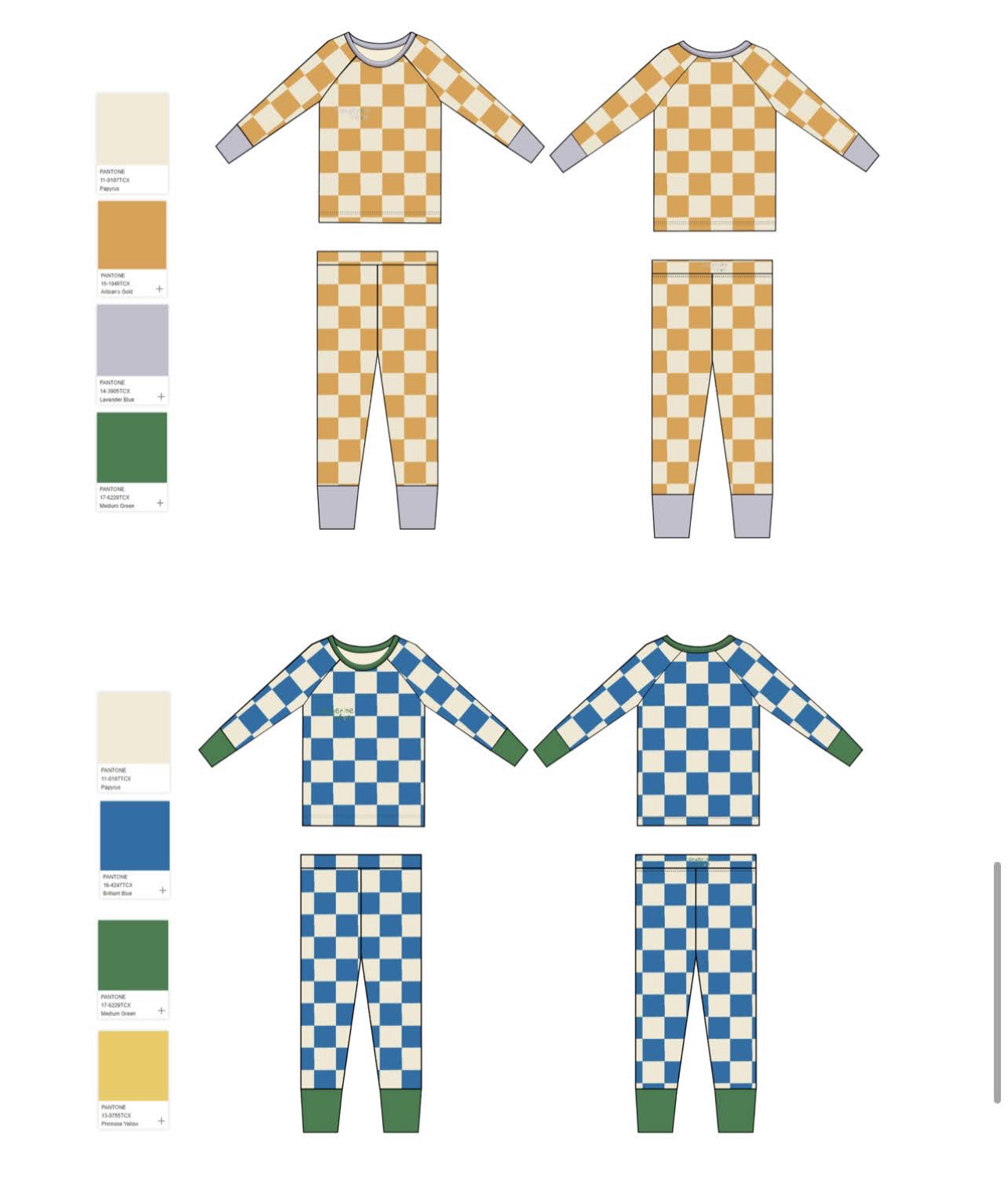
10. SHEATH LLC (3.6M/year)
Robert Patton (from Woodland Park, CO, USA) started SHEATH LLC about 11 years ago.
Production was well underway and sailing was going to be smooth, or so we thought.
Unfortunately, it seemed we had put all of our eggs into an unreliable basket, yet again. Bad pouch placement and riddled with inconsistencies… The new shipment was virtually unsellable. It seemed like an unmitigated disaster and yet another major setback.
That’s when I felt it, the same feeling that cost me my designer key invention. Defeat. This is where my new sense of faith and persistence came into play. The old me might have folded at this point, but I didn’t even flinch. I was not about to let it stop me again.
When you fail to quit, the universe will do a funny thing. It will actually acquiesce to your desire, though it will test you. When it sees that you won’t give up no matter what, it seems as though the universe will just kind of give in.

11. Ivee (120K/year)
Chelsea Rhoads (from Arvada, Colorado, USA) started Ivee over 5 years ago.
In 2016 we developed Pup Alert. A mobile temperature monitor for dogs, specifically designed for people who regularly travel with their pets (RV adventurers, award winning competitors, active hunters,etc)
The response was fantastic, with numerous pre-orders coming in. However, our hardware solution was not, missing multiple certification criteria. Lots of money down, tails between our legs, we hung our heads and went back to the drawing board.
A new idea: Before too long, our spirits were rejuvenated. Heads held high and tails a-waggin’, we’d come up with the idea for pup-eeze.
We adjusted the concept to be more inline with what our followers were asking for; a wearable device, peace of mind at home as well as on the road, cost effective, and a happier dog…
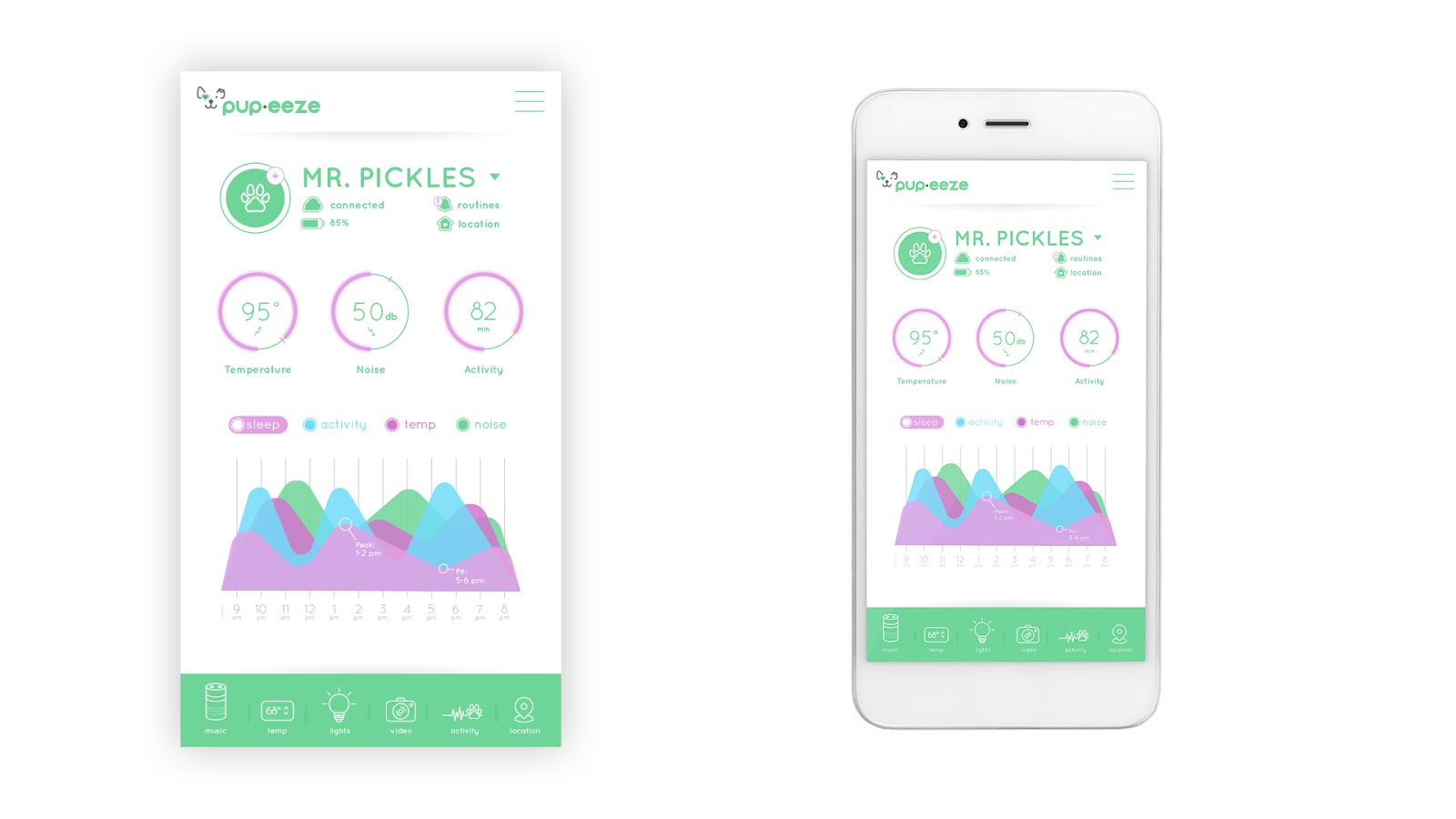
12. Tummy Games
Nemanja Divjak (from Novi Sad, Serbia) started Tummy Games almost 7 years ago.
The first game, Tummy Slide, was a big lesson. Despite our faith in it, the game failed.
Unfortunately, post-launch results were devastating – we suffered a net loss of $50.000. And it made us question if we were good enough to enter the gaming market at all.
We decided to take a shot at the genre, which caught the attention of the world’s biggest hyper casual publisher Voodoo. They saw our potential, and became our partners, kickstarting our growth.
It’s difficult, seeing 2 years' worth of work result in a $50.000 loss. But it’s a good thing we weren’t ready to give up just yet and gave ourselves another shot. If we hadn’t, we wouldn’t have been here.


Download the report and join our email newsletter packed with business ideas and money-making opportunities, backed by real-life case studies.

Download the report and join our email newsletter packed with business ideas and money-making opportunities, backed by real-life case studies.

Download the report and join our email newsletter packed with business ideas and money-making opportunities, backed by real-life case studies.

Download the report and join our email newsletter packed with business ideas and money-making opportunities, backed by real-life case studies.

Download the report and join our email newsletter packed with business ideas and money-making opportunities, backed by real-life case studies.

Download the report and join our email newsletter packed with business ideas and money-making opportunities, backed by real-life case studies.

Download the report and join our email newsletter packed with business ideas and money-making opportunities, backed by real-life case studies.

Download the report and join our email newsletter packed with business ideas and money-making opportunities, backed by real-life case studies.








